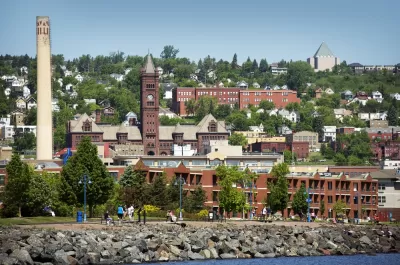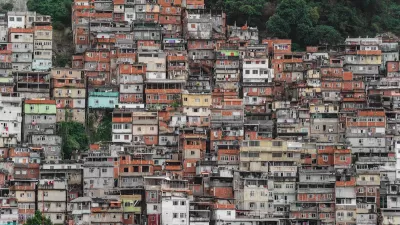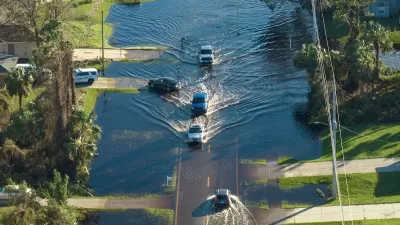While the data still shows many Americans moving toward climate risk, an increasing number have noted the obvious effects of climate change and decided to move toward fresh water and milder climates.

Duluth, Minnesota, with its abundance of fresh water and room to grow, has been identified as a potential climate migration hotspot—and many new arrivals are already crediting climate change for their move into the city at the edge of Lake Superior.
An article by Dan Kraker reviews some of the marketing and academic behind the idea of "Climate-proof Duluth," a phrase coined by climate adaptation expert Jesse Keenan. The idea and the location behind the phrase have already attracted media attention from The New York Times and CNN.
Kraker speaks with two recent climate migrants from California—who moved from Golden State's wine country to escape wildfires and floods. According to Keenan, they fall into one of two categories of climate migrants—those with the resources to move after evaluating where they are living for climate risks. The other group is made up by people who have been displaced by climate-related disasters and lack the resources to relocate or rebuild.
"There isn't much data to show how many people are actually moving because of climate change. Only anecdotal stories. Duluth hasn’t grown much in the past decade, only adding around 400 residents since the last census," explains Kraker.
"But in a survey of 2,000 U.S. residents last year, the online real estate company Redfin found that about half of Americans who planned to move factored extreme weather and natural disasters into their decisions to relocate."
Kraker quotes Daryl Fairweather, chief economist at Redfin, in mentioning a very large caveat to that data about the intentions of Americans to move away from climate risk—most Americans are still, in fact, moving toward climate risk, as documented in research also published by Redfin in August 2021.
Still, experts like Keenan says cities like Duluth should expect the trend of climate migrants to accelerate, especially while housing prices in expensive coastal regions provide additional reasons to relocate.
FULL STORY: Climate-proof Duluth? Why the city is attracting 'climate migrants'

Alabama: Trump Terminates Settlements for Black Communities Harmed By Raw Sewage
Trump deemed the landmark civil rights agreement “illegal DEI and environmental justice policy.”

Planetizen Federal Action Tracker
A weekly monitor of how Trump’s orders and actions are impacting planners and planning in America.

The 120 Year Old Tiny Home Villages That Sheltered San Francisco’s Earthquake Refugees
More than a century ago, San Francisco mobilized to house thousands of residents displaced by the 1906 earthquake. Could their strategy offer a model for the present?

BLM To Rescind Public Lands Rule
The change will downgrade conservation, once again putting federal land at risk for mining and other extractive uses.

Indy Neighborhood Group Builds Temporary Multi-Use Path
Community members, aided in part by funding from the city, repurposed a vehicle lane to create a protected bike and pedestrian path for the summer season.

Congestion Pricing Drops Holland Tunnel Delays by 65 Percent
New York City’s contentious tolling program has yielded improved traffic and roughly $100 million in revenue for the MTA.
Urban Design for Planners 1: Software Tools
This six-course series explores essential urban design concepts using open source software and equips planners with the tools they need to participate fully in the urban design process.
Planning for Universal Design
Learn the tools for implementing Universal Design in planning regulations.
Clanton & Associates, Inc.
Jessamine County Fiscal Court
Institute for Housing and Urban Development Studies (IHS)
City of Grandview
Harvard GSD Executive Education
Toledo-Lucas County Plan Commissions
Salt Lake City
NYU Wagner Graduate School of Public Service





























